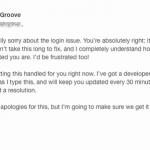January 22, 2014 April 14, 2016
Sometimes I look through my manager’s inbox and I can’t believe how much stuff they get sent. Set aside emails from colleagues and clients they have hundreds of emails from professional organisations, upcoming conferences, travel companies and not to mention lots and lots of sales requests. Oh and I haven’t mention what they receive through the post… brochures, leaflets, magazines and corporate gifts to name but a few. Dealing with our executive’s correspondence can be a full time job in its own right, particularly as the more senior the executive becomes the more guff they seem to receive. One of my executives once received a whole fresh salmon in the post, we had no idea where it came from and despite our best efforts never did find out!
The most important part of our role is to maximise the amount of time our managers spend on actual business matters so it is fundamental that we deal with their correspondence and in return they are comfortable delegating this task to us completely. Some executives will freely hand this over to their assistants on day one, others may need a little coaxing and some will hold on to their correspondence with a steely grip and woe behold anyone who messes with their emails! The benefits of dealing with our manager’s correspondence should be pretty obvious. There are a few systems I have put in place over the years that will help transition the process from manager to assistant. Hopefully even the most stubborn executive will give you a trial run after these suggestions!
1. Set up some standard replies to frequent requests
I really recommend setting up some standard replies to frequent requests such as dinner invites, events details and sales requests.
Write a draft response, run it past your manager and if they are happy keep this is a standard response. I do think that every email that comes into our manager’s inbox should be answered (remember we are managing their reputation as much as their schedule do we want our managers to be know as someone that doesn’t respond to emails?) so these standard responses will save us loads of time. For dinner and conference requests something short and sweet, like this, will work well:
Thank you for your kind invitation to … Unfortunately Mr Executive will not be able to attend due to a prior commitment. Please do accept my apology on behalf of Mr Executive.
Name of the assistant.
For an inappropriate sales request you may need to be a little more forceful so make sure your response is polite but to the point. You may want to use your manager’s email (and sign off the email in their name) for sales responses so that the sales person thinks they have heard a definite response from the key contact rather than the gatekeeper.
We appreciate you taking the time to send through details on your company. This is not something that we will be interested so please do go ahead and remove us from your mailing list.
name of the assistant.
Keep the standard responses saved in a separate document and simply copy and paste the response into an email and hit send.
Job done!
2. Which correspondence should you deal with directly?
Again discuss this with your manager before you completely take over their correspondence. Obvious messages for an assistant to deal with are sales, dinner / event invitations; in fact anything to do with their diary, thank you notes for free gifts or corporate hospitality. Other email correspondence can be a little tricky. If my manager is travelling I will respond to every single ‘;important’ email with a holding note, I will copy my manager into the email so that they know I have sent a holding note, they can then tell me how to deal with it or respond directly. My holding email looks this this:
Thank you for your note. Just to let you know Mrs Executive is currently on a business trip. She will respond to your email as soon as she is able to. In the mean time if there is anything I can help you with or if you would like to speak to another member of our team please do let me know.
name of assistant.
For every email my manager receives relating to a meeting request I will do one of two things. If I know about the meeting I will organise the meeting and send a meeting request to the participants. I will then update my manager in our daily catch up meeting. If I do not know what the meeting is about I will go back to the person requesting the meeting to ask for further information and either run this by my manager first or schedule the meeting depending on what information I have. To request more information, I ask the following:
- What is the reason for the meeting?
- How long do you need?
- Do you have an agenda?
- Do you have any paperwork that you can send through prior to the meeting?
- Can this be a phone call rather than a face to face meeting?
- Is my manager aware of the subject being discussed?
- Who else will be in the meeting?
3. Systems for correspondence
If your manager trusts you explicitly there is no need for them to see the correspondence but I think it is worth keeping a record (just in case). I have a file set up on my email system entitled ‘;Executive correspondence’. I drop all of the emails I’ve dealt with into the file with my response. This clears my manager’s inbox and leaves only the emails they have to deal with directly. Once a year I archive the file so that it doesn’t clog up my emails. If your manager would like to see what is taking place, there are many different options that you can use to keep them in the loop. Some assistants like to use Outlook’s flag system to draw their manager’s attention to emails that have been dealt with. Other assistants prefer to cc their manager into everything. The choice really is yours and one that should be signed off by your boss.
4. Sign off correspondence with your own name
Except for sales correspondence! I think that it is really important for assistants to sign off correspondence on behalf of their boss with their own name. It shows that our managers respect and trust us, that we are in control of their schedule and that we are true gatekeepers. If you hide behind your manager’s name why would your colleagues come to you first before going to your boss? It is really important colleagues and clients know to come to you first.






 Purdue online writing lab exercises in astronomy
Purdue online writing lab exercises in astronomy My writing desk kaufen conjugation
My writing desk kaufen conjugation Writing letter from unhappy customer
Writing letter from unhappy customer Revising and presenting your writing purpose
Revising and presenting your writing purpose Is writing with your left hand haram sharif
Is writing with your left hand haram sharif






